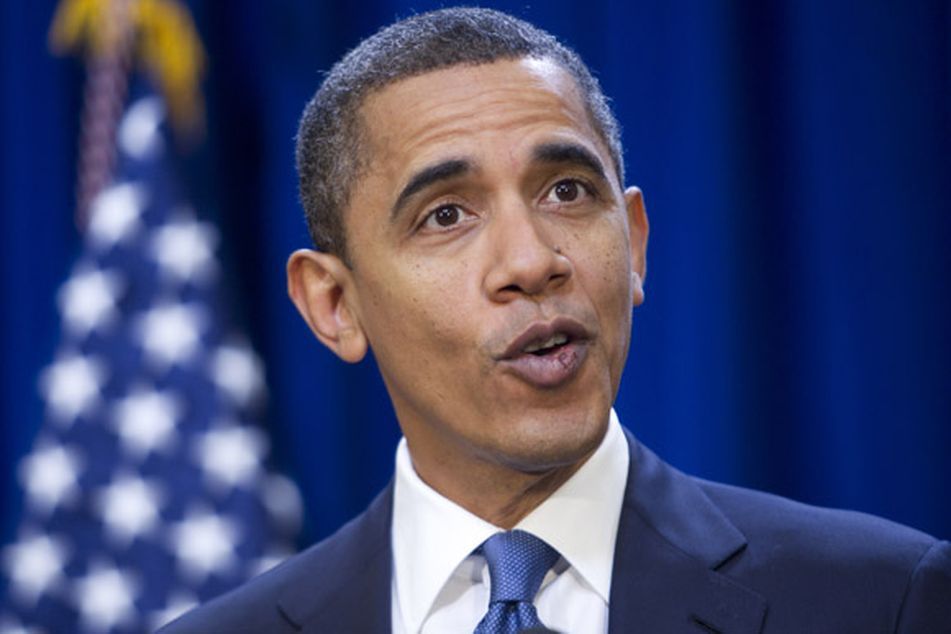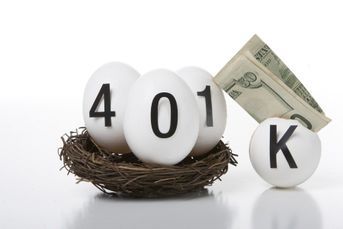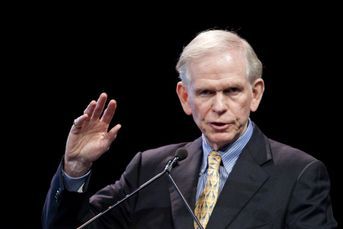Four more years bad for U.S. markets: Poll
 Many investors think an Obama re-election--which they expect--will be bad for U.S. financial markets.
Many investors think an Obama re-election--which they expect--will be bad for U.S. financial markets.
Global investors are souring on President Barack Obama while still expecting him to be re- elected in November.
Global investors are souring on President Barack Obama while still expecting him to be re- elected in November.
By a margin of 46 percent to 39 percent, investors say Obama’s re-election would be bad for U.S. financial markets, according to a quarterly Bloomberg Global Poll conducted on Sept. 4. That represents a sharp reversal of opinion from May, when investors backed Obama 48 percent to 36 percent.
“Anything that gets rid of Mr. Obama will be a positive for the economy,” Neil Grossman, 55, managing partner and chief investment officer at TKNG Capital Partners in St. Petersburg, Florida, said in a follow-up interview.
Obama does better on the global economy. While investors back Republican Mitt Romney for his economic vision for the U.S., they prefer Obama to manage the global economy by 44 percent to 42 percent, according to the 847 Bloomberg customers, who are investors, analysts or traders. They support Obama’s plan to end the George W. Bush-era tax cuts for the wealthiest Americans, while saying Romney is more likely to produce a durable solution to the U.S.’s long-run fiscal woes.
More global investors report a favorable view of the president than unfavorable, by a 50 percent to 45 percent margin.
“President Obama’s re-election would be good for the U.S. economy and markets,” said Henry Sandberg, 27, a research analyst at Tiverton Trading in Monte Carlo, Monaco.
Better Vision
As the campaign heads into its final two months, Romney, a wealthy veteran of the private-equity industry, is drawing increased support from financial professionals. Asked which candidate has laid out a better vision for the U.S., 42 percent choose Romney and 40 percent select Obama. In May, Obama enjoyed an 11-percentage-point edge on the same question.
“Governor Romney’s tenure at Bain Capital will give him the needed background to make the U.S. a much more business- friendly environment, and that in turn will help the economy grow at a faster clip,” said Matt Kennedy, 34, senior financial associate, at Oppenheimer & Co. in Atlanta.
Opinions of the two candidates are significantly different among U.S.-based investors and those abroad. Only 18 percent of U.S. investors surveyed think Obama’s re-election would be good for U.S. markets. The president’s vision for the economy is endorsed by greater numbers outside his home turf, with 51 percent of non-U.S. respondents approving.
Romney as Dealmaker
Forty-eight percent of global investors say Romney’s election would be a good thing for U.S. markets compared with 30 percent who said it would be bad.
Global investors also say a Romney presidency would be more likely to produce a sweeping tax-and-spending deal to address the U.S. government budget deficit. Though Republicans insist they won’t agree to raise taxes, 53 percent of investors say a package deal would be more likely if Romney wins; just 30 percent say Obama could produce such a “grand bargain.”
Even with their distaste for Obama’s economic policies, investors by a 64 percent to 28 percent margin anticipate his re-election, according to the survey. The poll’s respondents tilt to the political right, with 79 percent describing themselves as centrist or conservative; 96 percent are male.
Investors also endorse Obama’s plan to end the Bush tax cuts for the highest-earning Americans while stepping up spending on infrastructure, education and innovative energy programs. Obama’s plan will “increase spending and aggregate demand overall,” says Sandberg.
Favorable on Romney
Romney enjoys a 46 percent to 42 percent favorable-to-unfavorable split, an improvement from May when he was rated negatively by 46 percent to 40 percent.
Asked about the impact of Obama’s policies on the investment climate, 55 percent say they are pessimistic versus 40 percent optimistic. In May, investors split evenly on the same question.
“We need to be cutting taxes across the board to generate some consumer spending,” said Richard Marling, a broker with Martin Brokers in London. “Over the past four years, the U.S. appears to be going down the European route, i.e. becoming more socialist.”
Investors report little faith in Democrats or Republicans in Congress and say the negative tone of the presidential campaign will have lingering effects.
Sour on Parties
Neither congressional party reaches 30 percent favorable ratings from investors. And 73 percent of investors say that months of trading insults on the campaign trail will make it harder for the U.S. to tackle its financial problems. Just 12 percent say the campaign bruises will heal quickly.
“Regardless of who wins, the two parties need to work together to form a realistic bipartisan budget that puts the U.S. economy back on a sustainable debt path,” said Tom Lawson, an economic analyst with Asia-Pacific Risk Management in Wellington, New Zealand. “From what I’ve seen in the past few years, this is going to be a struggle for either candidate.”
Investors are lukewarm on Romney’s economic plan providing for across-the-board tax cuts, higher defense spending and entitlement-program changes. Thirty-nine percent of respondents say the Romney plan would strengthen the U.S. economy, while 37 percent say it would weaken it.
They also have little faith Romney will keep one of his central campaign promises. By a margin of 82 percent to 11 percent, they say they are skeptical that Romney will fulfill pledges to crack down on Chinese trade practices by designating China a currency manipulator and imposing countervailing duties on imports from that country.
Uncertain on Iran
“There is considerably more uncertainty with a Romney election,” said Timothy Ball, managing director at Stormharbour Securities in New York, who stressed that he was speaking for himself and not his firm. “His policy could be either contractionary or stimulative; it is very hard to say which outcome you will get.”
Investors also doubt a signature Obama promise, to prevent Iran from acquiring a nuclear weapon. Only 26 percent of respondents are confident the president will do that compared with 65 percent who doubt it.
The poll also reflects an erosion in investor assessments of the U.S. economy, with 22 percent saying the economy was deteriorating compared with 18 percent who said that in May. Thirty-four percent say the economy is improving, down from 43 percent in the last survey, and 44 described conditions as stable.
(Bloomberg News)
Learn more about reprints and licensing for this article.








